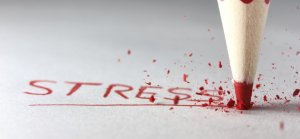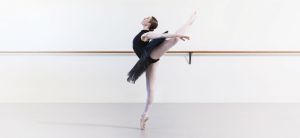Brand Audits Update x Christine Moody*

Stress and its negative side affects of long-term stress is documented in various respected academic and business journals. I know first hand how stress can affect all areas of your life including your personal and business life. Researchers now believe that the stress and subsequent reaction to it is part of your DNA. I am one of the lucky ones, I think I got the ‘good genes’. I come from a family of determined women and men who see a challenge and take it head on. I think is it something to do with the mix of my Scottish and Australian heritage perhaps. I have had many challenges—especially over the past three years—but I have used these challenges to achieve so much more than I ever thought I could—from an exercise regime that includes bootcamp-style classes and first-ever ballet lessons; to creating start-ups including ‘The Wrap Dress’ and ‘Designer Law School’; as well as achieving one of the most important milestones: finishing my Masters Thesis!. All because I learned how to harness the stress and react to the challenges by changing my mindset and breaking things down to ‘bite size’ pieces. I now say to stress and the challenges: “Bring it on!”
Fast Company
“Can trauma, stress, and even nightmares be passed down from generation to generation? Scientists say yes. A number of research finds that those who have been traumatized around the time of conception can pass on a DNA code to their offspring that results in a higher vulnerability to stress in their molecules, neurons, cells, and genes. Furthermore, this gene expression—a chemical coating upon the chromosomes—is strong enough to be passed on to a third generation, which means grandchildren have “a kind of biological memory” of what their grandparents experienced, according to studies.”
Forbes
“Stress affects people in all different ways—or at least, different people respond to it very differently. For some, it rolls off quickly, and they rebound in a reasonable amount of time. For others, it “sticks” and it takes much longer to recover, if ever. This is because people’s mental “resilience” varies enormously, which itself is based on both genes and environment. For people who aren’t so good at coping with stressors, it may be that they’ve never been particularly good at it—or it could be that they were once good, but the losses and blows of life have worn away their resilience over time. Luckily, it’s possible to build that skill back up.”
Inc.
10 steps to building your resilience x Thompson Wall
“It can be easy to feel like throwing in the towel when you’re faced with adversity, tragedy, or even just plain old stress. But what if we could build an immunity to stress in the same way we take vitamins and antibiotics to boost our immunity to illness? A recent article in
The Wall Street Journal explores the art of learning resilience with Dennis Charney, dean of the Icahn School of Medicine at Mount Sinai. Charney is a world-renowned neurobiology expert specializing in the treatment of mood and anxiety disorders. In
Resilience: The Science of Mastering Life’s Greatest Challenges, Charney and Steven Southwick, a psychiatry professor at Yale University, explain that people can train their brain to be more resilient by harnessing their stressors and using them to their advantage.”
*Christine Moody is one of Australia’s leading brand strategists and the founder brand management consultancy, Brand Audits. With more than 30 years’ professional experience, Christine has helped a diverse client base of local and international brands, including Gold Coast City Council, Hilton Hotels, and Wrigleys USA, to develop, protect and achieve brand differentiation.










